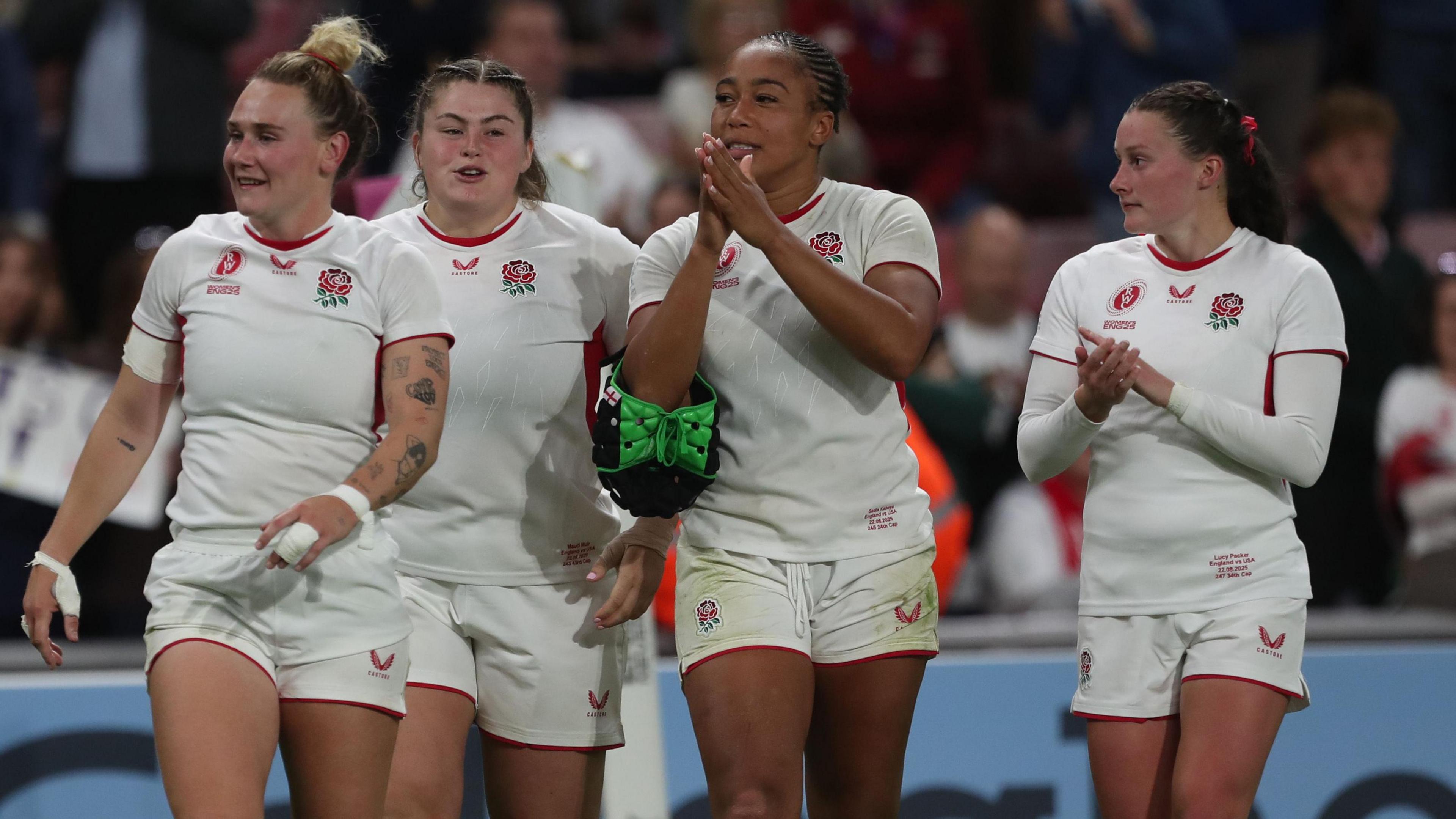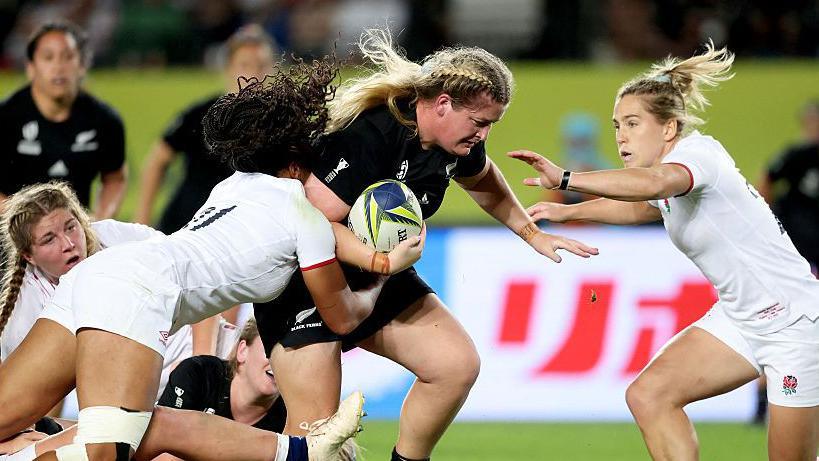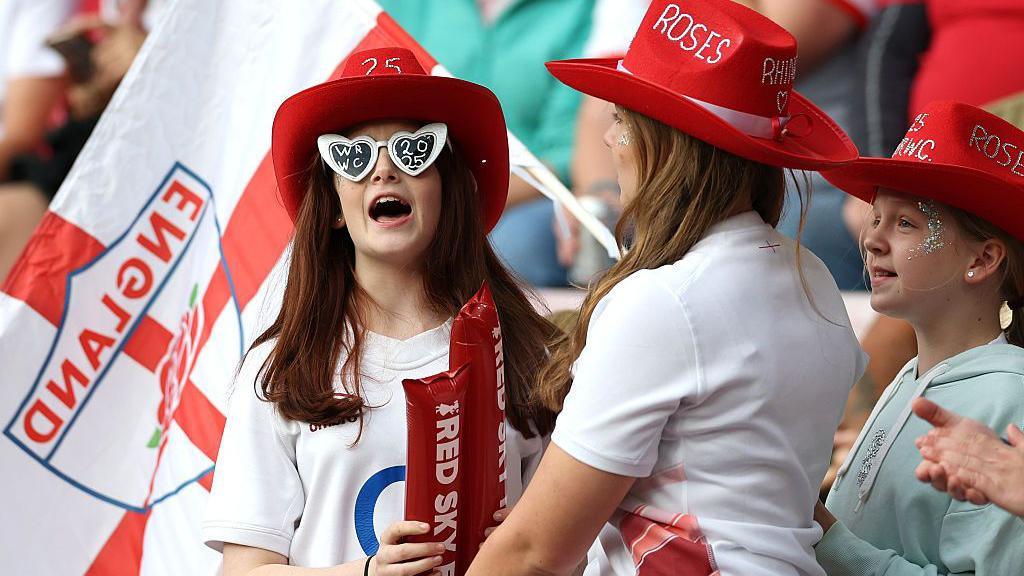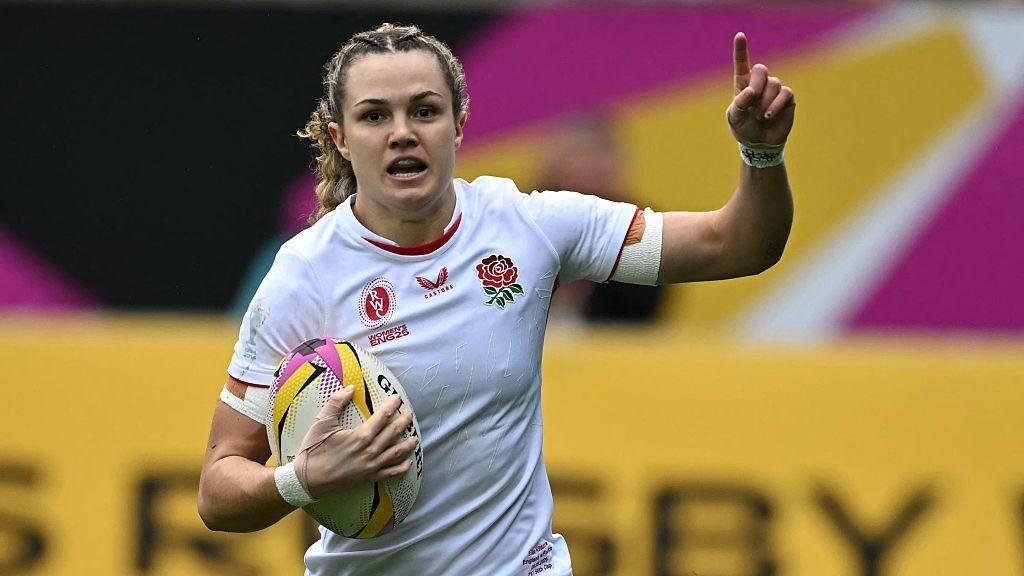'Ignore the noise' - how World Cup favourites England can beat pressure

England have won all five of their games at the 2025 Women's Rugby World Cup so far
- Published
England's approach to being clear favourites for their home World Cup was summed up by the slumber party they held on the Wednesday before their semi-final.
The team gathered for a movie night, watching Step Up - a noughties film about an underdog dancer having his day on the big stage - on the projector at their base.
It illustrates how England have aimed to ease the pressure as they seek to end an 11-year wait for a world title - and become world champions on home soil for the first time.
"It's about ignoring the noise around them, making sure they do not care if they are favourites," David Richardson, honorary visiting professor at Liverpool John Moores University in sports science and an experienced consultant in sports leadership, told BBC Sport.
"As long as you have an internal expectation to perform, then the result will look after itself. People will expect, but they are in the final having beaten good teams so it is about dispelling the myth."
The final at Twickenham on Saturday might be between the two top-ranked sides on the planet, but world number ones England are heavy favourites.
Their last defeat was in the 2022 World Cup final, with the Red Roses having won all 32 matches since then under head coach John Mitchell, who took over following that agonising defeat by New Zealand.
England and Canada have faced each other 37 times - the English have won on 33 occasions, including their past 13 meetings across nine years. The Red Roses beat the Canadians in the 2014 World Cup final and the semi-finals in 2022.
Sarah Hunter was part of the winning team in 2014, captained England in the heartbreaking 2022 final defeat and is now their defence coach.
Having her experience around camp will be crucial in helping younger players deal with nerves.
"You have to trust in the process and the plan, and trust each other," she says.
"I look back to 2014 when we won, and that day of the final everyone was really relaxed, really calm. Everyone knew what the role was, what they were going to go out and do. We didn't need to make it any bigger."
Mitchell's side are helped by being one of the few national teams with a set-up that is entirely professional - both players and coaches.
Their backroom staff includes Charlie Hayter, head of women's performance since 2023, along with others who can look after the players' psychological health as a priority.
Canada, meanwhile, are semi-professional and had to crowdfund some of their costs to boost their chances of winning a first World Cup.
And while the Canadians have several world class players and pushed England hard in their last meeting - a 21-12 defeat in 2024 - the difference in support off the pitch could be telling on it.
"They [England] have more specialist coaches," says sports science expert Richardson. "There is a definite advantage when they have these staff there for longer, understanding habits and behaviours."
What makes Canada so good and will they cause World Cup upset?
- Published23 September
Chasing greatness through grief - England's warrior queen
- Published27 September
From All Blacks to Red Roses - Mitchell's coaching journey
- Published27 September
The last time England won the Rugby World Cup
'Three years ago was different staff, different country'

England lost 34-31 to New Zealand in the last World Cup final in 2022 - their fifth final loss in six attempts
A key message from England has been to change the narrative of coming so close yet so far on so many occasions. They have reached each of the past six finals, but won only one.
While 12 of the starting 15 from the 2022 final are in their squad, there are many new faces too. Eight of the 32-woman squad made their World Cup debuts this year, and of course they have a different coach.
"That sense of changing the narrative, that seems to be the single pathway to avoid the fear of failure as a consequence of 2022," says Richardson.
"There were critical moments in that final that they had to overcome, which didn't go their way.
"You have an experienced squad, but the narrative is around transition and owning this situation rather than reflecting on the past. It is a strong narrative, all about seizing the opportunity they have.
"The phrase is unfinished business, and seizing opportunities. It seems to be filtering through and you can see the players are buying into it.
"It's like the [England men's] football team, you can get hung up on past. But three years ago there was a different vibe in camp, different staff, different country. It has nothing to do with the weekend."
There is the added pressure of the favourites tag - and the omnipresent message currently around women's sport of leaving a legacy and inspiring future generations.
But at their squad announcement in July, England boss Mitchell said failure to win the World Cup "would not define" this team.
RFU chief Bill Sweeney told the BBC's Rugby Union Weekly podcast this week: "The legacy is all in place already.
"We're attracting a lot more brand-new fans to the game, which was the intention all along. We're attracting more volunteers, we're attracting more players."
"Regardless of what happens, there will be legacy, " adds Richardson. "The more exposure you have, the better, and it will not stop when the game is finished."
England's road to the 2025 World Cup final
Related topics
- Published27 September

- Published21 September
